- TOP
- NITTA DuPont’s Technologies and People
- T.O. / Supervisor, Section 3, Mie Slurry Production Department Mie Production Division, Production Division
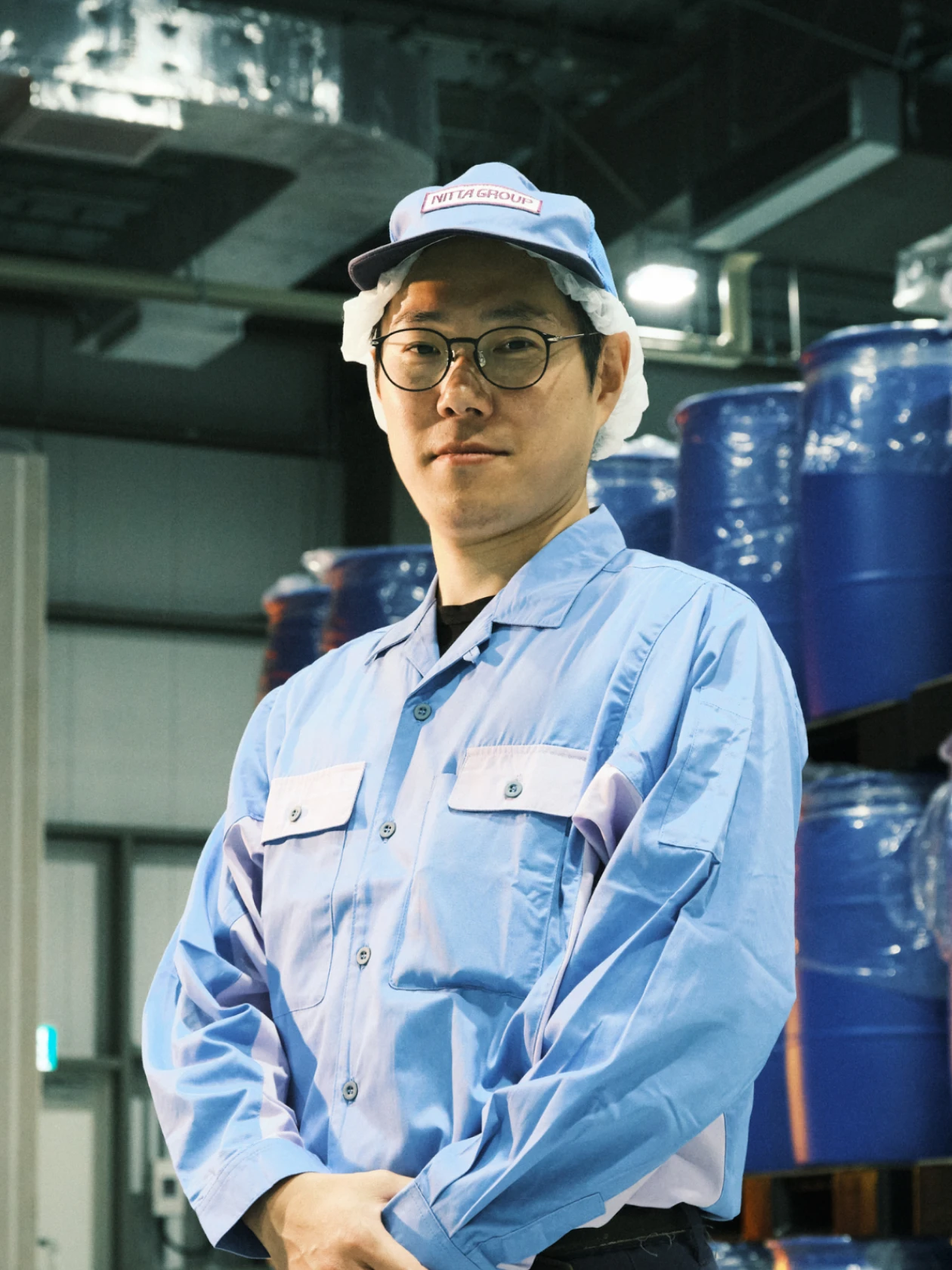
Meeting exacting demands with consistently high levels of quality
Mie Production Division, Production Division
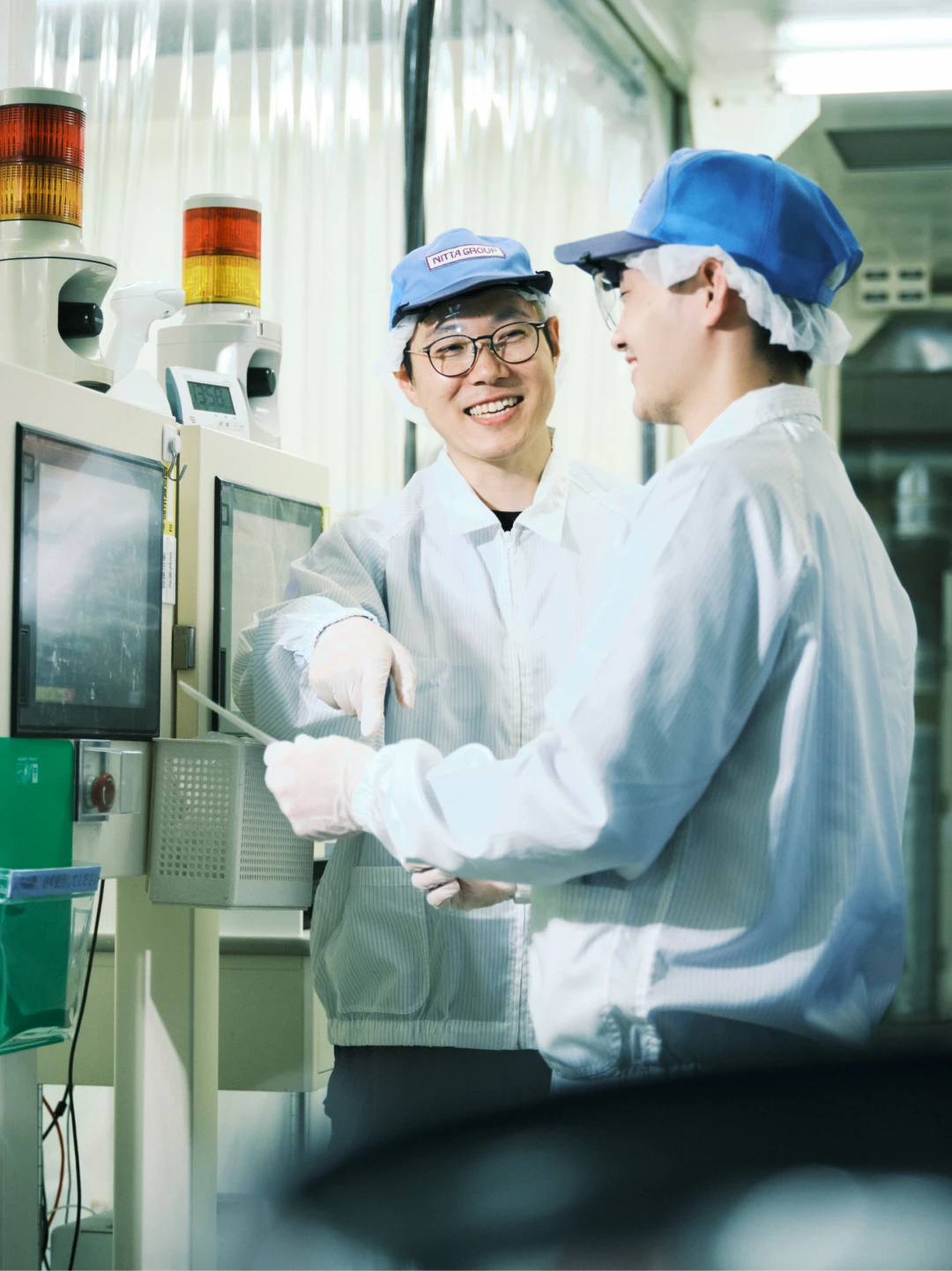
Section 3 of the Mie Slurry Production Department manufactures polishing slurry by adding the types and amounts of raw materials specified in production recipes. We produce a wide range of products, and different types of products use different raw materials and have a variety of downstream inspection processes. As a supervisor, I manage the production staff while working to ensure that production is problem-free. We use DX in our manufacturing lines, and the types and amounts of raw materials are selected using a touch panel. I walk around the plant making sure that production staff can confidently carry out their production work without hesitation.
The team leaders and other section staff are very kind. One of the things that I’m proud of is the high caliber of people working here. I feel comfortable letting them instruct temporary staff on how to perform operations. One of the things that my senior colleagues taught me was the importance of having a work environment in which you always felt free to ask questions whenever you encountered difficulties. People sometimes consult with me regarding potential improvements to manufacturing lines, and I check with other departments as well, making improvements that contribute to better results. Whenever field staff reach out to me directly, I want to do whatever I can for them. Nobody wants to work in a gloomy workplace, so I strive to make ours a fun one.
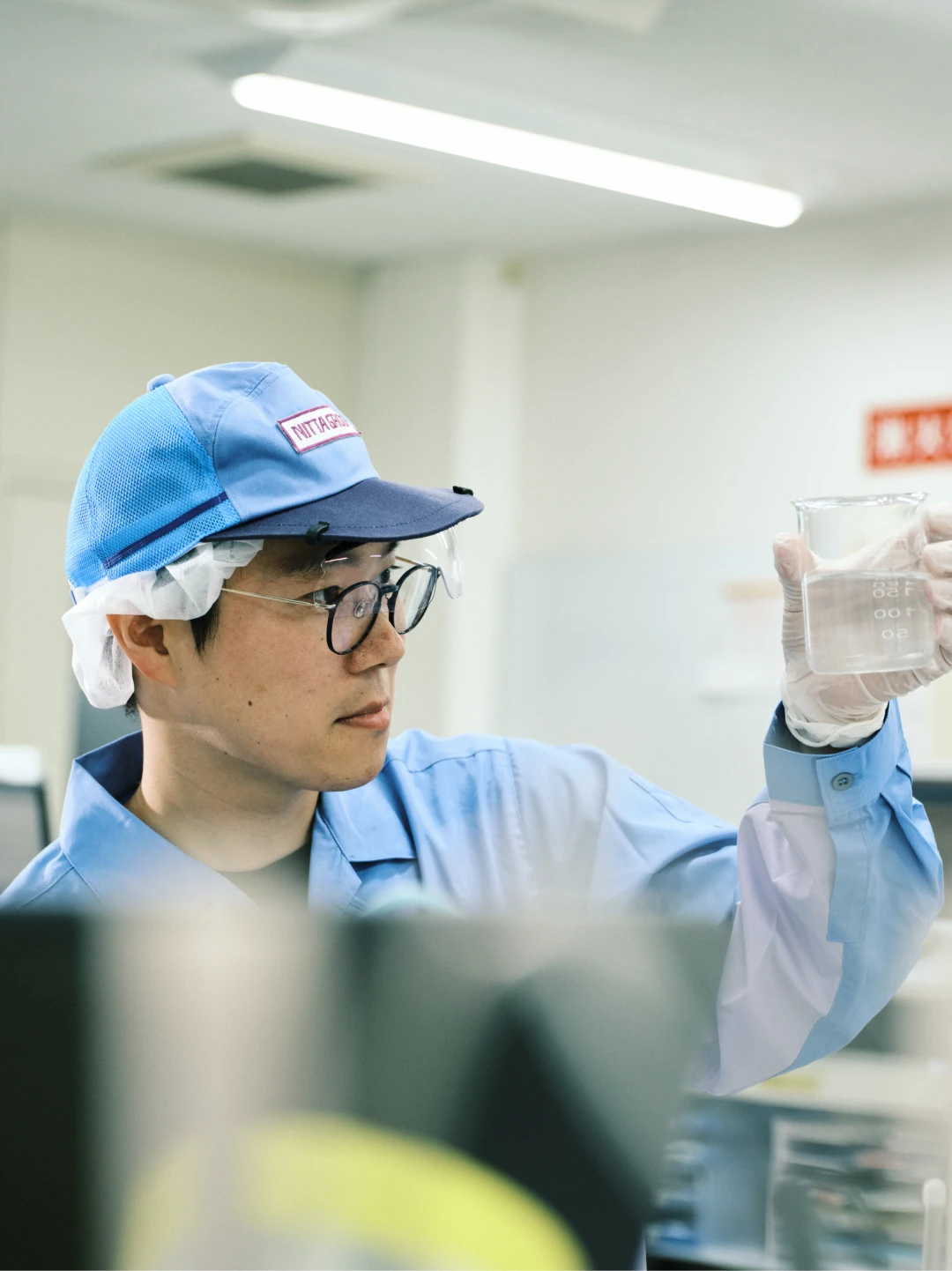
I’m also responsible for product management. Polishing slurry is liquid, so it is heavily influenced by temperature and humidity. Even if we produce polishing liquid on clean production lines that prevent contamination by metal or other substances, deviations in the compositions of raw materials are reflected in inspection results. There are various product inspection conditions and methods. For example, one approach is to put polishing slurry in an oven, baking it and then investigating what solid substances remain. When a development department requests a new product, in particular, the number of raw materials increases, as does the number of new inspection methods, but we need to be able to perform our work confidently and maintain the same level of quality.
The demands of our customers, the world’s top semiconductor manufacturers, are extremely strict. Even for variations in measurement results that would normally be tolerated, they ask us to provide detailed explanations of the causes. However, our ability to provide major companies like this with a stable level of quality gives us even more confidence in our own products.
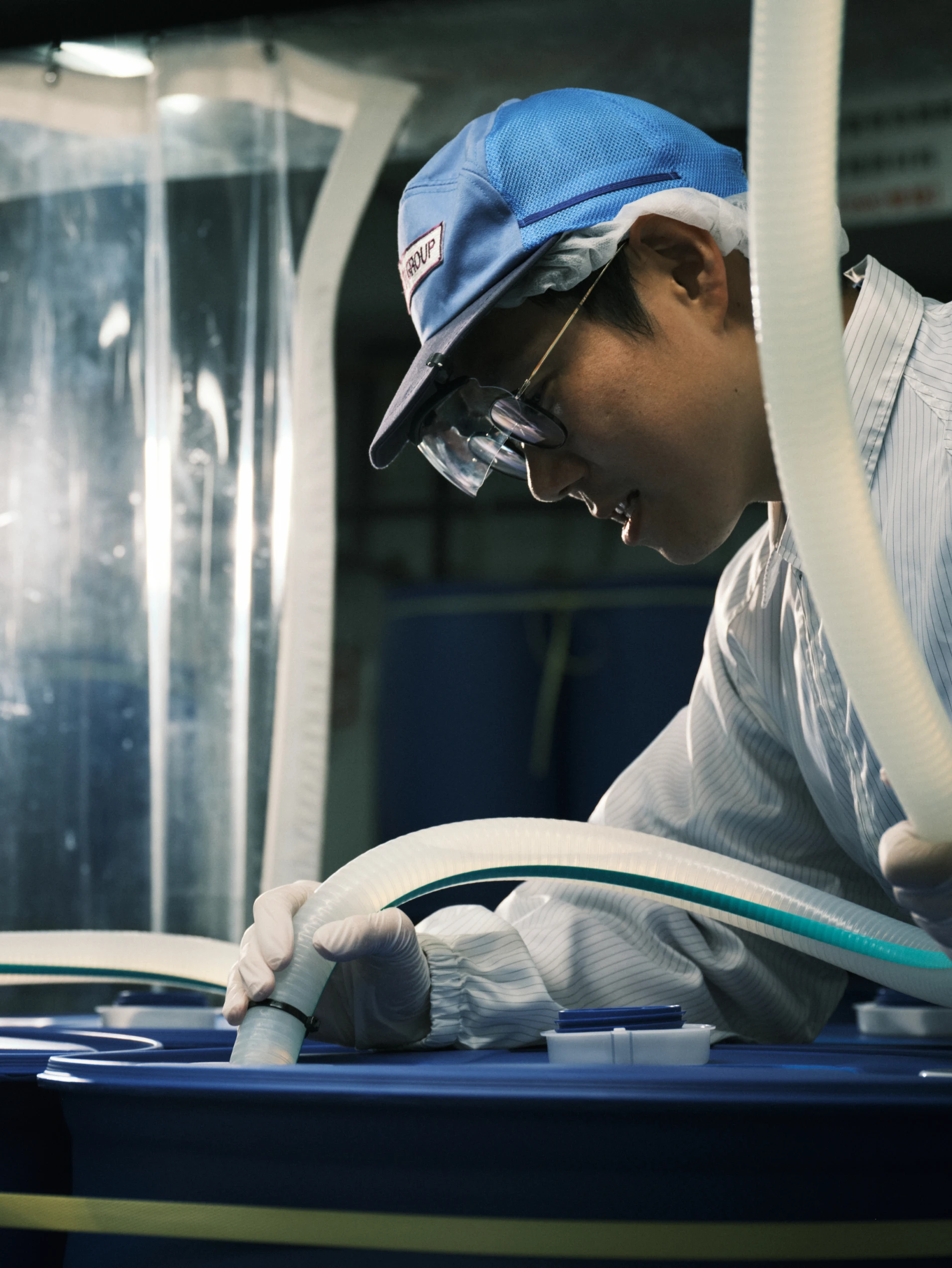
Our parent company, NITTA, and other Group companies make frequent improvements. I also go to other plants several times each year to see if there are any improvement measures that I could bring back to our own plant. I look for ways to further improve product quality or to make the working environment better for our manufacturing staff. I want to actively implement any potential improvements that we could make.
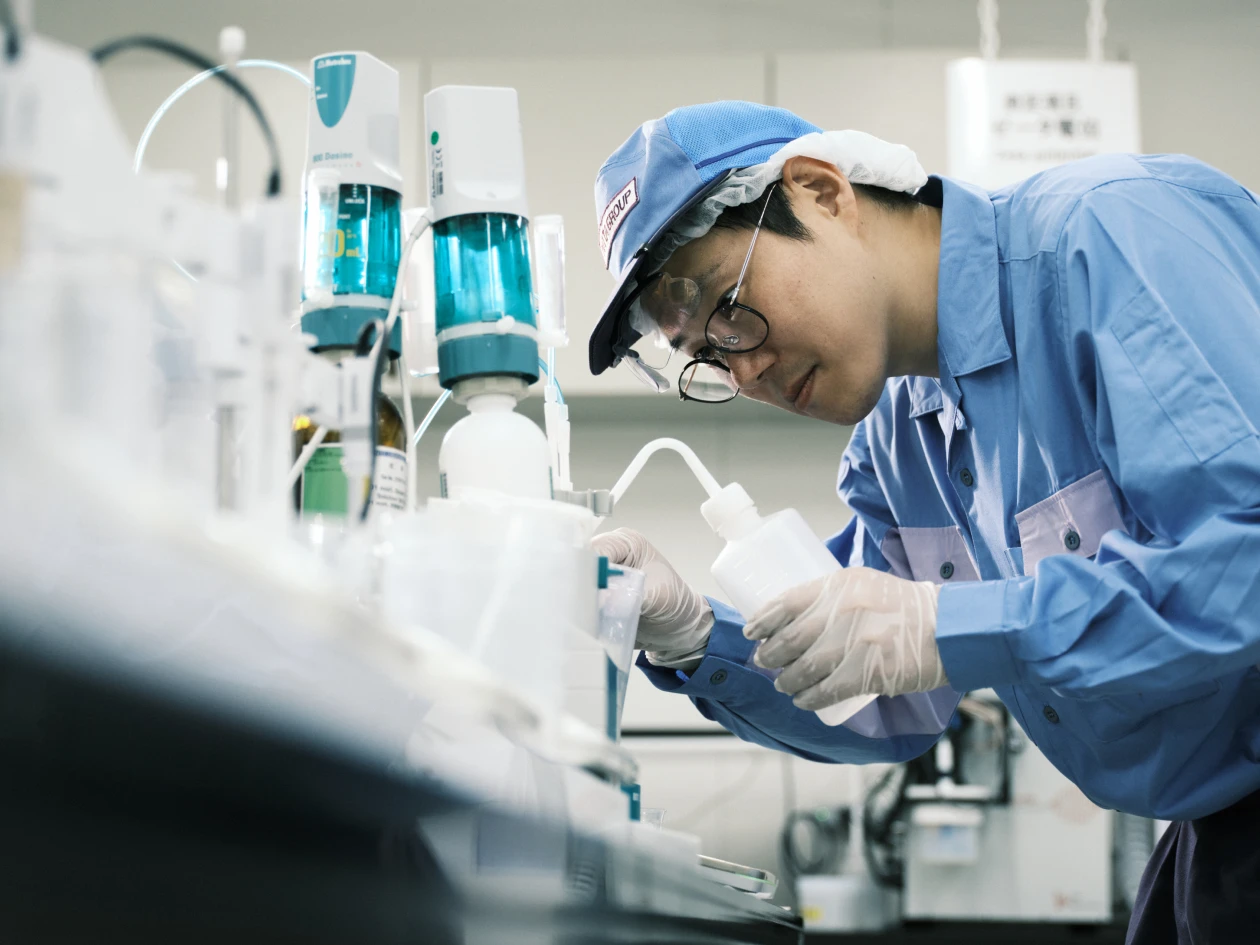
To turn the discussion to myself for a moment, I never want to be thought of as someone who lacks competence in his work, so I’m always trying to improve my abilities. When I see overseas customers come to tour our plant and my manager interfaces with them in English, I feel a little envious. Since becoming a supervisor, I’ve wanted to have standout strengths and skills of my own. I’m going to try even harder to improve myself and achieve greater success.
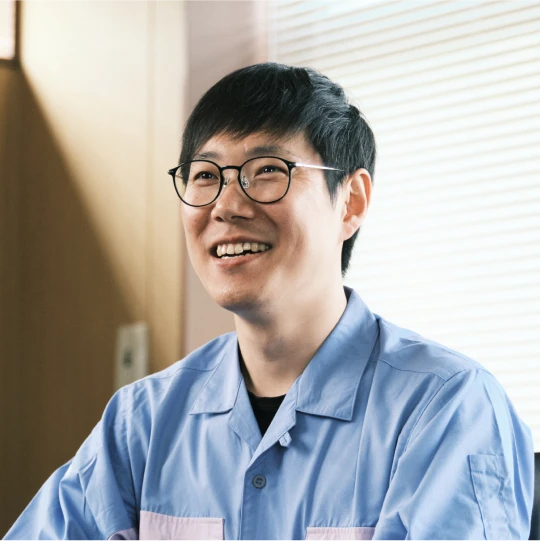
NITTA DuPont
The staff I manage, and the young people who will one day join our company, will be responsible for the future of NITTA DuPont, so even when it’s hard for them to hear, I say what needs to be said. It’s not a pleasant role to have, but I think there are things you need to say, while paying close attention to how you say them, of course. One of my senior colleagues that I have great respect for taught me that the field is the highest priority. I want to share my own ideas and beliefs so that the entire staff will work together as one, to deliver top quality products that can provide our customers with even greater peace of mind.
